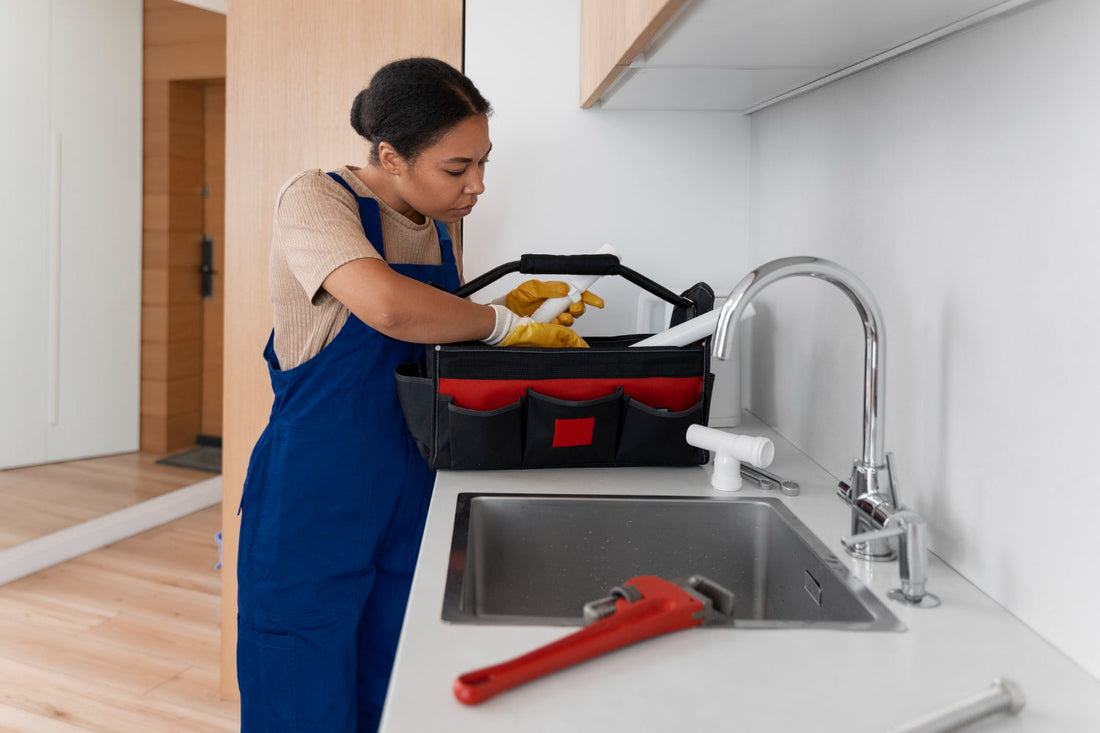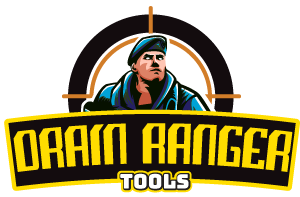
Plumbing Tool Maintenance 101: Cleaning and Care Tips
Share
Tools are an important part of every profession, including plumbing. They help plumbers carry out vital operations like cutting pipes, adjusting valves, and preventing clogging.
Plumbers are also able to move from one job to the other quickly with these tools. That’s why it’s important to maintain them properly.
Apart from that, maintaining your plumbing tool kit also ensures that you can maintain a professional image. Your professional image will lead to more positive reviews from your customers, allowing you to influence 85% of them.
Not maintaining your tools properly can lead to lost time, poor quality of work, and increased costs. The increased costs will be due to the need to purchase new tools. But you don’t have to worry about this, since you can learn how to maintain your tools with our help.
Continue reading to learn more.
What Cleaning Routine Should You Follow After Every Plumbing Job?
You should do the following things after a plumbing job:
Inspect The Tools Thoroughly
Firstly, take a good look at the tools and check for signs of rust or stubborn dust spots. To determine whether a dust spot is stubborn or not, gently rub your thumb over it. If the dust does not come off easily, then it could be a stubborn dust spot.
As for rust, it will appear in the form of reddish-brown spots. Some other forms of residues include the ones seen in the table below:
|
Type of Residue |
How It Appears |
|
Calcium or Magnesium carbonate |
White spots |
|
Flux |
Discolored or burnt paste |
|
Plumbers’ putty |
Greasy residue (might appear shiny or sticky) |
Table 1: Types of Residues on Plumbing Tools
You should clean these residues instantly to avoid wear and tear and ensure tool maintenance.
Clean The Dirt & Residue
Firstly, you should be wearing an OSHA-approved PPE kit. That’s because it will help you comply with regulations by the Occupational Safety and Health Administration. After that, you should get a clean cloth and some hot water mixed with soap in a bucket.
Dunk the cloth gently in this water mixture and wipe your hand plumbing tools, like plungers, and pipe wrenches.
Cleaning them with hand tools will help you remove the grime, debris, and dirt. Once you’re done with that, consider disinfecting them with a mild solution of water and bleach.
With regard to the residue, you should use the following techniques:
|
Type of Residue |
How To Clean Them |
|
Rust |
Soak your plumbing tools in a vinegar solution, scrub them with wire brushes, rinse them, dry them, and apply a light oil coat to avoid future rusting. In case the tool parts are not removable, dab the vinegar solution gently with a clean cloth |
|
Calcium or Magnesium carbonate |
Soak the tools in or dab them gently with a vinegar and baking soda solution. Leave the tools for a sufficient duration, like overnight, to dissolve the deposits. Wipe down gently after. |
|
Flux |
Use an isopropyl alcohol solvent to clean the flux, and then wipe down with another clean cloth |
|
Plumbers’ putty |
Depending on how hard it is stuck on the pipe, you can use your hands, a chisel or knife, a soap solution, and paint thinners to remove the putty. |
Table 2: Types of Residues on Plumbing Tools
Use Air Compressors
Since using water or solutions can be damaging to your power tools, you should use air compressors. These tools will use bursts of pressurized air to remove the dirt and debris. You should be careful in directing the stream of this air to avoid potential equipment damage.
Let’s now understand how frequently you should clean your plumbing tools.
What Is the Ideal Deep Cleaning Weekly Frequency For Plumbing Tools?
Consider the table below to understand how frequently you should clean your plumbing tools:
|
Tool Type |
Cleaning Method |
Frequency |
|
Pipe Wrenches |
Scrub with a wire brush, and use silicone grease to keep the wrench parts lubricated |
Weekly |
|
Drain Snakes |
Wipe the snake clean, clean the retriever device (if applicable), and lubricate the coils with silicon grease to ensure smooth operation |
Weekly |
|
Wipe the lens with a microfiber cloth |
Weekly |
|
|
Press Tools |
Clean the jaws of the tools and lubricate the joints with silicon grease |
Weekly |
Table 3: Weekly Deep Cleaning Guide by Tool Type
Once you clean your specialty and basic plumbing tools, you should store them efficiently to prevent further damage.
How To Store Plumbing Tools in Between Jobs to Care for Them?
You should use a designated toolbox that is clean and dry to store your plumbing toolbox. This will ensure that you don’t leave the tools lying around. In case you don’t have a toolbox, you can use a tool pegboard.
A tool pegboard has designated slots for every tool, and will help you choose your tools easily as well. Ensure to hang this tool pegboard in a dry, moisture-free area.
With regards to your battery tools, you should keep the batteries in a dry and dark area. So you can use a locker kept in a dark corner of your office or room, facing away from the sun. That’s because sun exposure can damage the batteries.
Finally, for your power tools, you should ensure that you wrap the coils in a tangle-free manner to prevent wear and tear.
By storing the tools in a dry environment, you will be able to avoid the buildup of rust. You can also use special products to ensure rust-free tools.
Which Products Should You Use to Ensure Rust-Free Plumbing Tools?
Consider the table below to learn more about the products you can use to maintain your specialty plumbing tools:
|
Product Type |
Where Should You Use The Tools? |
Examples of Brands You Can Use? |
|
Silicone Spray Lubricant |
Moving metal joints |
CRC, 3-IN-ONE |
|
Anti-Rust Wipes |
Quick touch-ups on steel tools |
WD-40 Specialist |
|
Desiccant Packs |
Absorb moisture in toolboxes |
Dry & Dry, EvaDry |
|
Tool Coatings |
Long-term storage protection |
Boeshield T-9 |
Table 4: Products To Ensure Rust-Free Tools
While storing your well-worn or new plumbing tools is important, you should not forget to calibrate them as required.
How to Calibrate Power Plumbing Tools to Ensure Longevity and Operational Efficiency?
Some of the different types of power tools used by plumbers include cordless drills, reciprocating saws, and pipe crimping machines.
You should ensure that the tools are calibrated as shown below:
|
Type of Tool |
Required Calibration |
|
Cordless Drill |
To calibrate the depth of a cordless drill for proper drilling, loosen the depth control collar and slide it vertically downwards or upwards to the desired position. Once you’ve done that, tighten the collar to fasten this depth |
|
Reciprocating Saws |
Identify and adjust the stroke length (should be between 19 mm and 32 mm) Test it by cutting a scrap metal piece, adjust again if needed, and then fix it |
|
Pipe Crimping Machines |
Open and close the tool handles, check the gap (should be between 210 mm to 222 mm); Remove the eccentric set screw, push and turn the eccentric up to adjust the width of the handle Tighten until there is no gap |
Table 5: Calibration for Plumbing Power Tools
The Final Word: Keep Your Tools Sharp, Clean, and Reliable
You should regularly maintain your plumbing tool kit to ensure its longevity and operational efficiency. Maintaining your tools will also ensure that you are able to garner respect and look professional.
However, you should know that what we’ve spoken about above is just the tip of the iceberg. That’s because there are various other cleaning techniques utilized by professionals worldwide.
You can get in touch with us if you would like to know a bit more about these techniques for greater cleaning. Alternatively, we can also provide top-quality tools that you can use for your work.
Need Professional-Grade Tools That Last Longer and Clean Easier?
Shop our durable plumbing tools now!
Frequently Asked Questions
Q1. Are There Any Disadvantages of Using Isopropyl Alcohol for Cleaning Rust?
Ans. While isopropyl alcohol is good for cleaning rust, it can it has the capacity to damage the electric components. So, in case you’re using it to clean, say, a cordless drill, you should be careful.
Q2. Should You Use a Plastic Toolbox to Store Your Plumbing Tools After Use?
Ans. Yes, you can use a plastic toolbox to store your plumbing tools after using them. However, you should ideally go for a steel or metal toolbox since they are more durable than plastic.
Q3. Which Products Should You Not Use When Cleaning Inspection Cameras?
Ans. You should avoid using harsh chemical solvents like benzene when cleaning inspection cameras. That’s because the lens could catch fire.
Q4. How Frequently Should You Clean Your Press Tool?
Ans. You should clean your pipe press tool every day to ensure that it remains in perfect working condition.
